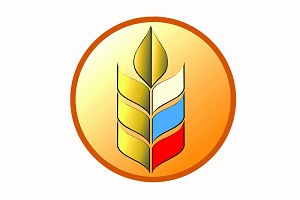The Ministry of Agriculture sees no prerequisites for a sharp increase in selling prices for products

The Ministry of Agriculture assesses the situation on the agro-industrial complex market in Russia as stable and sees no prerequisites for a sharp increase in selling prices for any products. This is stated in the message of the ministry.
"The Ministry of Agriculture constantly monitors the prices of agricultural producers for the main categories of food. At present, the ministry assesses the situation as stable and sees no prerequisites for a sharp increase in selling prices for any commodity groups," the ministry said.
The report notes that a reduction in prices for poultry products in the context of the spread of bird flu and an increase in production costs will be facilitated by new mechanisms to support industry enterprises developed by the Ministry of Agriculture. In particular, the maximum size of a preferential short-term loan provided to one borrower for poultry enterprises has been increased from 1 billion to 1.5 billion rubles, and it has also become possible to prolong preferential investment loans for up to 12 years to enterprises affected by highly pathogenic avian influenza. To ensure the fodder base, preferential short-term loans have been introduced to livestock breeders for the purchase of grain, meal, cake and amino acids. In addition, feed costs are expected to decrease in the coming month as a result of export duties on grains and oilseeds.
According to Rosstat, in March there was an increase in prices for meat products, including chicken meat - by 7.2%, lamb (except for boneless meat) - by 5%, chicken legs - by 4.4%, culinary products from poultry - by 2.4%, beef (except for boneless meat) - by 2.3%, beef liver - by 2.2%, pork (except for boneless meat) - by 1.9%. Chicken eggs rose in price on average in Russia by 5.3%, while in 14 subjects of the Russian Federation - by 0.1-2.9%, in 27 subjects - by 3-4.9%, in 38 subjects - by 5- 9.9%, in six subjects - by 10-14.4%.
The Ministry of Agriculture recalled that in order to reduce the volatility of prices for basic food products, the government of the Russian Federation has taken a number of systemic measures aimed at maintaining the necessary volumes of food on the domestic market, maintaining the profitability of enterprises and reducing production costs, as well as ensuring the availability of final products for the population. Thus, the effect of the tariff export quota has already allowed to reduce prices for the grain group. The Ministry notes a decrease in prices for wheat (third class - by 1.6% per month to 13.7 rubles per kg, fourth class - by 1.1% to 13 rubles per kg), rye (-0.9%, to 9 9 rubles per kg) and corn (-1.2% to 13.5 rubles per kg).
To maintain the profitability of processing enterprises, flour milling enterprises are provided with subsidies for the purchase of food wheat, and bakeries - for the sale of bread and bakery products. "The implementation of these measures made it possible to reduce the cost of flour and keep bread prices at the level of the end of 2020," the Ministry of Agriculture noted. In addition, according to the ministry, prices for the dairy group are practically unchanged, over the past year their growth is comparable to the level of inflation. In particular, since the beginning of the current year, the cost of hard and soft cheeses decreased by 1.1%, to 380.6 rubles per kg, butter 72.5% - remained at the level of 436.6 rubles per kg (+0.1%) .
Consumer price index, according to Rosstat
As recalled in the Ministry of Agriculture, selling prices for sugar (-1.4% since the beginning of the year) and refined bottled sunflower oil (+0.5% since the beginning of the year) remain at a stable level in Russia, which is due to the effect of agreements concluded between retailers and manufacturers about the cost of these products. In the long term, this will be facilitated by new support for producers developed by the Russian Ministry of Agriculture, as well as the expansion of acreage under sugar beet and sunflower in order to increase production volumes, according to the ministry.
"Traditionally, active price dynamics in the current period of the season is demonstrated by the fruit and vegetable group, while there is already a decrease in prices for a number of vegetables due to the arrival of new products from greenhouses. In the future, as the harvest progresses, a correction in prices for open-ground vegetables and potatoes is expected, which in this it is planned to sow more in 2020 than in 2020," the Ministry of Agriculture concluded.



























































